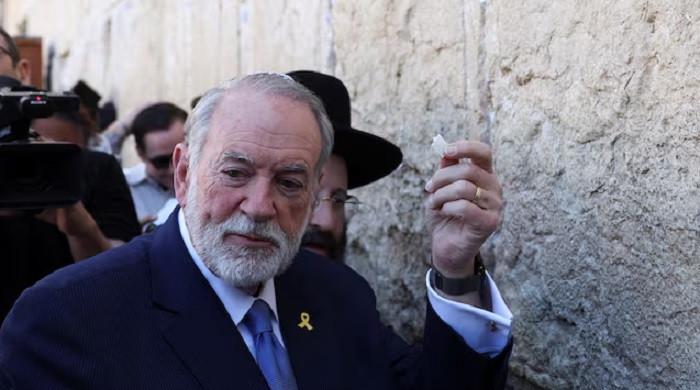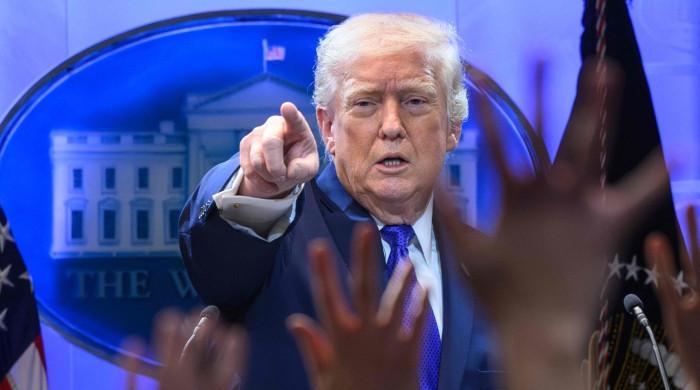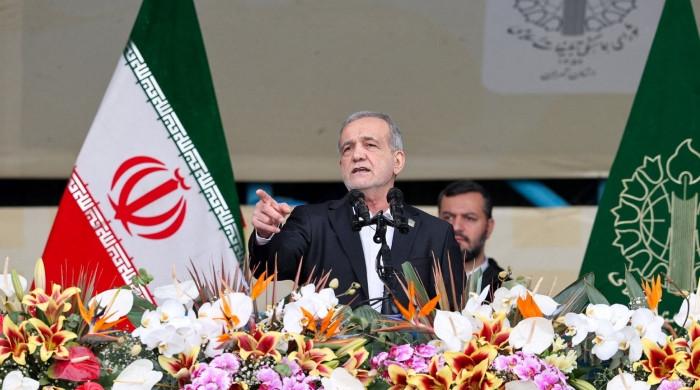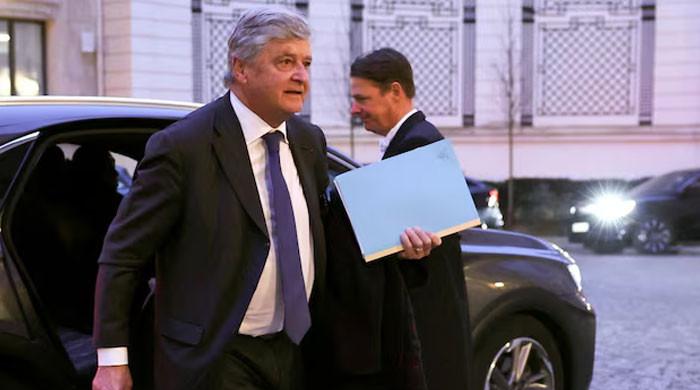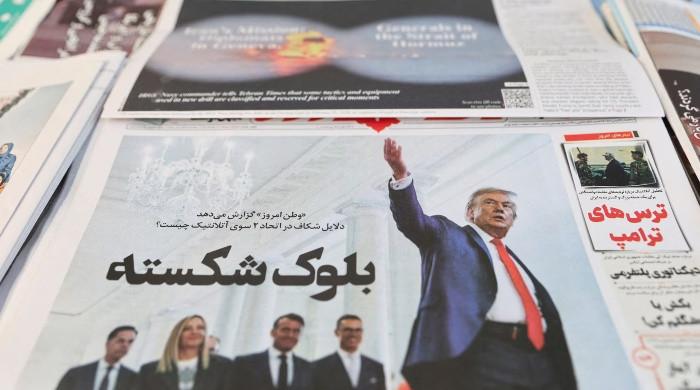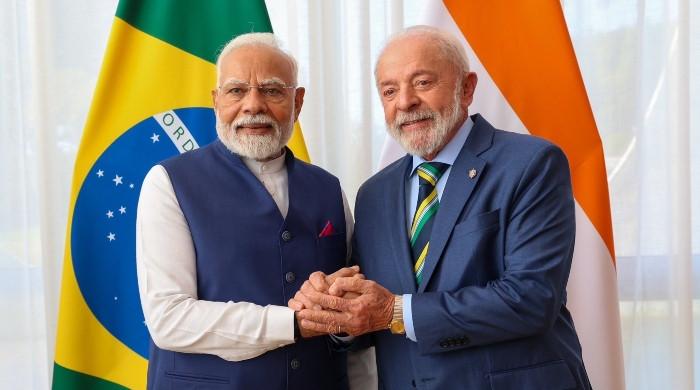Afghan Taliban vow to abide by peace deal after series of attacks
Taliban are training their fighters in various centres in Afghanistan for their planned ‘spring offensive’
March 08, 2020
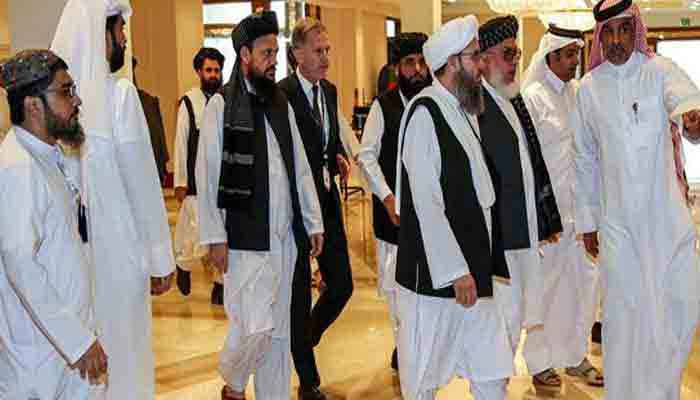
PESHAWAR: After a couple of deadly attacks in the last week, the Afghan Taliban said they would abide by the peace agreement reached with the United States in Doha on February 29.
While talking to The News from an undisclosed location in Afghanistan’s Helmand province, senior Taliban members said they would avoid targeting the Afghan security forces and their installations in major cities and populated areas after they their ‘reduction in violence’ (RIV) pact with the Afghan government last week.
They maintained that though they were not bound to spare the Afghan security forces and their installations, they had principally decided not to attack them in major cities and other populated areas.
Read more: Pentagon downplays new Taliban attacks, NATO chief warns of hard road to Afghan peace
The statement comes after a series of attacks on Afghan forces last week and an announcement by US expressing confidence in Taliban to deliver on the landmark agreement to end the war.
“This is what we had committed in the peace accord that we would not carry out attacks in cities and other populated areas of Afghanistan. Also, we decided not to attack even the Afghan forces in cities but would be free to target them in rural areas,” said one senior Taliban leader.
Spring offensive
Pleading anonymity, he said they had been training their fighters as usual in various training centres in Afghanistan for their planned ‘spring offensive’, to be launched by the end of March or early April.
However, the Taliban leader said they would be waiting for the outcome of the purposed intra-Afghan dialogue, before launching their much publicised “spring offensive.”
“Every year we launch spring offensive with a new name. This year we may or may not launch it officially. With the US-led foreign forces, we have already signed an agreement not to fight. And as for as the Afghan security forces are concerned, we would be waiting for the intra-Afghan dialogue and its outcome,” the Taliban leader explained.
He said presently around 10,000-12,000 of their fighters were under training and their plan was to reach the number up to 15,000 this year.
Read more: Afghan Taliban praise Pakistan's role in US peace deal
Taliban concerned over attack by US forces
Meanwhile, the Taliban are said to be not happy with the recent attacks on their position in Afghanistan’s Helmand and decided to raise the issue on the proper forum.
Taliban spokesman in Doha, Suhail Shaheen said it was mentioned in the peace accord that they (US) can defend themselves or the Afghan security forces in case they come under attack by the Taliban within the same premises but not in a place far away from the site of the attack.
“In case they come under attack or Taliban target their checkpoint, or Taliban came under attack, they have the right to defend themselves within the same premises. It would be violation of the peace accord in case they used air power or any other weapon to target Taliban positions in another area, away from the site of the attack,” Shaheen explained.
He said there was a separate “communication channel” and besides US and Taliban, the Qatar government was part of it and its domain was to “thoroughly” investigate such issues.
Read also: US launches first airstrike against Taliban after peace deal
Shaheen didn’t explain if there was any type of punishment or fine which would be imposed on the accused party if it was found it had committed violation. “Well we didn’t devise any strategy how to tackle issues like violation of the peace accord but the ‘joint communication channel’ is the right forum to discuss as the aim was to prevent this type of incidents in future,” he argued.
He said they had agreed to meet the head of prisons department of the Afghan government regarding prisoners’ swap and refused meeting with the Afghan government’s delegation in Doha.
The US military attack on Taliban compound in Nahre Saraj area of Helmand province had enraged Taliban militants and they threatened they would not spare even US forces in case they violated the peace accord again. Shaheen, however, denied these reports and said they would abide by the peace accord.
What is the agreement?
- The deal includes a timeline for the withdrawal of all US and NATO troops from Afghanistan as well as guarantees from the Taliban that it will prevent militant groups including al-Qaeda from using Afghan soil to threaten the security of the United States and its allies.
- The agreement lays the groundwork for negotiations between the Taliban and the Afghan government - known as intra-Afghan talks - to end a war that began after the United States launched attacks on Afghanistan after the Sept. 11, 2001 hijacked plane attacks.
- The accord calls for a phased withdrawal of American and coalition forces and also requires the Taliban to initiate a formal dialogue with the Afghan government and other political and civil society groups on a permanent nationwide ceasefire and power-sharing in post-war Afghanistan.
- “The United States will reduce the number of US military forces in Afghanistan to 8,600 and implement other commitments in the US-Taliban agreement within 135 days of the announcement of this joint declaration and the US-Taliban agreement,” the United States and Afghanistan said in a joint statement on Saturday.
- A full withdrawal of all US and coalition forces would occur within 14 months of this deal getting signed, if Taliban fulfil their end of the deal.
- Up to 5,000 Taliban prisoners will be released and the Taliban will release up to 1,000 prisoners by March 10.
- The United States will work with the UN Security Council to remove Taliban members from sanctions by May 2020.
- The next step would be for negotiators to work out an agreement for comprehensive ceasefire and the future governance of the country. Officials and experts say this will pose serious challenges as the Afghan government has until now been sidelined.
- Even before getting to talks with the Taliban, Afghanistan’s two main political rivals - President Ashraf Ghani and Chief Executive Abdullah Abdullah - must settle a dispute over which officials, opposition members and activists should negotiate with the insurgents.
Originally published in The News






